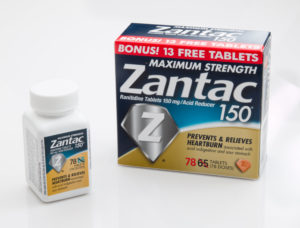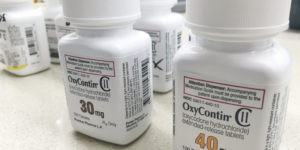New criteria identify common drugs potentially risky for seniors
More than 50 medications and classes of medications can cause serious side effects or other adverse events in people 65 and older if not prescribed with care, according to the American Geriatrics Society’s newly updated “Beers Criteria for Potentially Inappropriate Medication Use in Older Adults.”
The criteria, last revised in 2003, were published online in the Journal of the American Geriatrics Society.
Annually, more than a third of seniors are at risk of suffering a drug side effect or other adverse drug event, the American Geriatrics Society noted.
“Older adults run a particularly high risk of [adverse drug events], in part because age-related physiological changes and multiple health problems can make them more vulnerable to such reactions,” said Jennie Chin Hansen, CEO of the American Geriatrics Society, in a release.
The 2012 AGS Beers Criteria group medications or classes of medications that may be harmful to older adults into three categories.
The first category includes 34 medications that are potentially inappropriate because they either pose high risks of side effects or may have limited effectiveness in older adults, and because alternative treatments are available. New entries include “sliding scale insulin.”
The second category includes 14 medications that are potentially inappropriate for older people with certain diseases, risk factors or disorders because they may exacerbate these conditions. Selective serotonin reuptake inhibitors are among the new entries in this category
A third, new category includes 14 medications to be used with cautionin older adults. These medications may be associated with more risks than benefits in older people in general, but nonetheless may still be the best choice for individuals if administered with caution. Vasodilators are listed in this group.
The American Geriatrics Society cautions that these criteria alone “should never dictate prescribing” and are intended to inform “thoughtful prescribing decisions.”
“These are drugs that studies suggest are potentially inappropriate for older people or should be used with caution in older adults with specific health problems,” said Todd Semla, PharmD, MS, co-chair of the panel convened to update and expand the criteria. “But responses to drugs vary significantly among older people.”
The National Committee on Quality Assurance and the Pharmacy Quality Alliance (PQA) have used the AGS Beers Criteria when developing quality measures regarding pharmacotherapy, and the Centers for Medicare & Medicaid Services (CMS) have incorporated the criteria into evaluation of nursing home compliance with medication-related regulations.
The American Geriatrics Society plans to update the AGS Beers Criteria every three years. The criteria, along with supplemental materials, are available here.
I Advance Senior Care is the industry-leading source for practical, in-depth, business-building, and resident care information for owners, executives, administrators, and directors of nursing at assisted living communities, skilled nursing facilities, post-acute facilities, and continuing care retirement communities. The I Advance Senior Care editorial team and industry experts provide market analysis, strategic direction, policy commentary, clinical best-practices, business management, and technology breakthroughs.
I Advance Senior Care is part of the Institute for the Advancement of Senior Care and published by Plain-English Health Care.
Related Articles
Topics: Clinical











